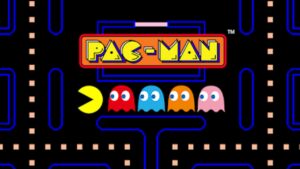In the ever-evolving world of video games, Unity has emerged as a leading game engine, empowering developers to create immersive experiences across various platforms. From indie titles to AAA blockbusters, Unity’s versatility and robust features make it a go-to choice for game development. Let’s dive into what makes Unity so powerful and explore its impact on the gaming industry.
What is Unity?
Unity is a cross-platform game engine developed by Unity Technologies. First released in 2005, it has grown to become one of the most widely used game engines globally. Unity supports the creation of both 2D and 3D games, allowing developers to deploy their projects on desktops, mobile devices, consoles, and even virtual reality (VR) and augmented reality (AR) platforms.
Key Features of Unity
Unity’s success can be attributed to several key features that make it a favorite among developers:
- Cross-Platform Compatibility: Unity allows developers to build a game once and deploy it across multiple platforms, saving time and resources.
- Robust Ecosystem: Unity boasts a large community and a vast asset store filled with pre-built assets, plugins, and tools. This ecosystem helps streamline development and reduces the need for custom coding.
- Visual Scripting: Tools like Playmaker enable non-programmers to create game logic without extensive coding knowledge, making Unity accessible to a broader range of developers.
- Real-Time Multiplayer: Unity supports real-time multiplayer features, making it ideal for developing online games that require seamless player interaction.
Types of Games Developed with Unity
Unity’s versatility means it can be used to create a wide range of game genres:
| Game Genre | Unity Features Used |
| Action Games | Physics engine for realistic movements and collisions. |
| Adventure Games | Visual scripting for immersive narratives and interactive environments. |
| Role-Playing Games (RPGs) | Complex character customization and open-world environments using Unity’s terrain tools. |
| Simulation Games | Physics for realistic simulations, such as weather or vehicle dynamics. |
| Puzzle Games | Easy to create with Unity’s intuitive interface and physics engine. |
| Strategy Games | Supports real-time multiplayer and AI systems for dynamic gameplay. |
Why Use Unity for Gaming?
Unity’s popularity among developers can be attributed to several factors:
- Ease of Use: Unity provides an intuitive interface that makes it easy for developers to start creating games quickly.
- Community Support: The large community and extensive documentation ensure that developers can find help when needed.
- Cross-Platform Deployment: The ability to deploy games across multiple platforms without significant rework is a major advantage.
- Cost-Effective: Unity offers a free version for projects earning less than $100,000 per year, making it accessible to indie developers.
Real-World Examples of Unity in Action
Unity has been used in numerous successful games, including:
- Cuphead: A side-scrolling run-and-gun shooter known for its challenging boss battles and unique art style.
- Subnautica: An underwater survival game that showcases Unity’s capabilities in creating vast, immersive environments.
- RimWorld: A colony-building simulation game that demonstrates Unity’s support for complex AI and simulation mechanics.
The Future of Unity in Gaming
As technology continues to evolve, Unity is poised to play a significant role in shaping the future of gaming. With advancements in VR and AR, Unity’s support for these platforms will become increasingly important. Additionally, Unity’s commitment to improving performance and adding new features ensures that it will remain a top choice for developers looking to create engaging, cross-platform experiences.
Key Takeaways
- Unity is a versatile game engine capable of creating both 2D and 3D games.
- Cross-platform compatibility allows deployment on multiple platforms with minimal adjustments.
- Robust ecosystem provides extensive resources and tools for developers.
- Visual scripting makes Unity accessible to non-programmers.
FAQs
Q. What platforms does Unity support?
- A, Unity supports deployment on desktop (Windows, macOS, Linux), mobile (iOS, Android), console (PlayStation, Xbox, Nintendo Switch), and VR/AR devices.
Q. Is Unity free?
- A. Unity offers a free version for projects earning less than $100,000 per year. For larger projects, Unity requires a subscription.
Q. What types of games can be made with Unity?
- A. Unity can be used to create a wide range of game genres, from action and adventure to puzzle and strategy games.
Unity’s Impact on Gaming
Unity has revolutionized the way games are developed, offering a powerful toolset that empowers creators to bring their visions to life across multiple platforms. As the gaming industry continues to evolve, Unity’s role in shaping the future of interactive entertainment is undeniable. Whether you’re an indie developer or part of a large studio, Unity provides the tools and flexibility needed to create engaging, immersive gaming experiences.













